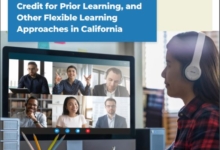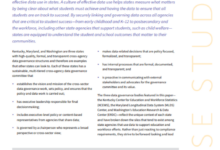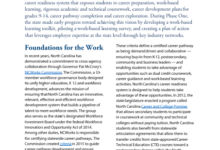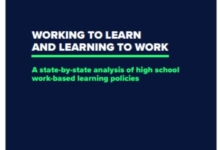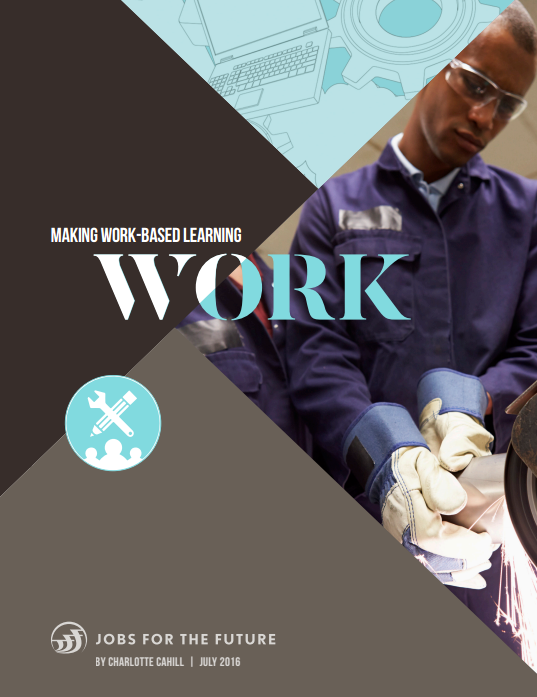The benefits of work-based learning are clear, but many programs and policies target the most highly educated and socially connected segments of the U.S. population. There is a need for policymakers, educators and workforce development leaders to expand access to work-based learning opportunities so that underserved populations — such as low-income students and out of school youth — can develop workplace skills and knowledge.
This paper from Jobs for the Future tackles the challenge of access to work-based learning programs by presenting seven principles for effective work-based learning models:
- Support entry and advancement in a career track;
- Provide meaningful job tasks that build career skills and knowledge;
- Offer compensation;
- Identify target skills and how gains will be validated;
- Reward skill development;
- Support college entry, persistence, and completion; and
- Provide comprehensive student supports.
Jobs for the Future is releasing case studies connected to each of these seven principles. Case studies can be accessed here.

